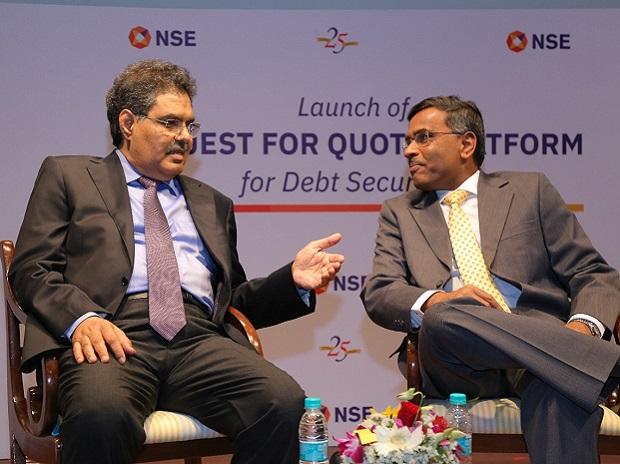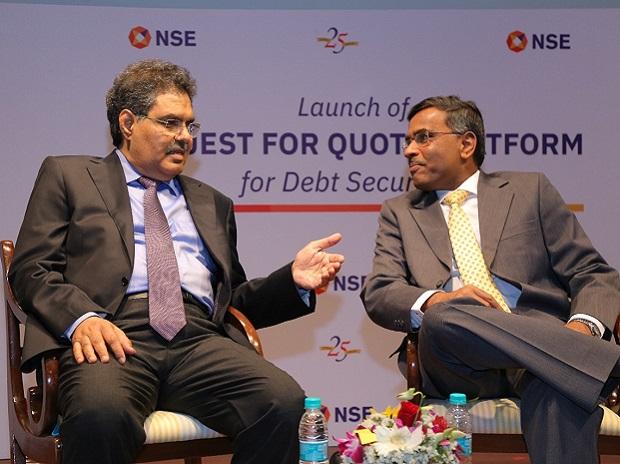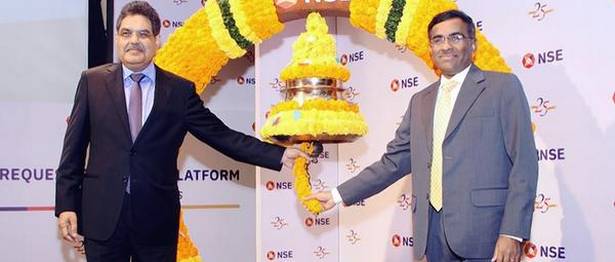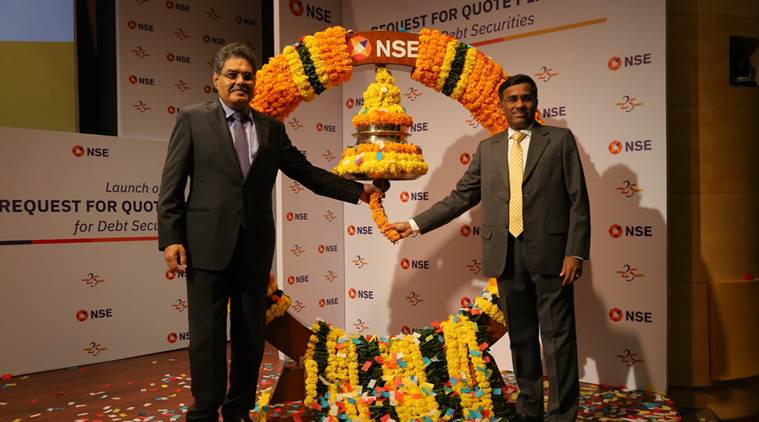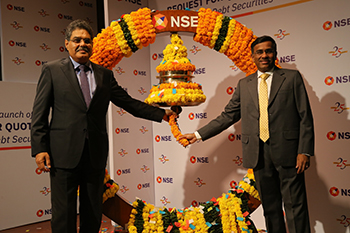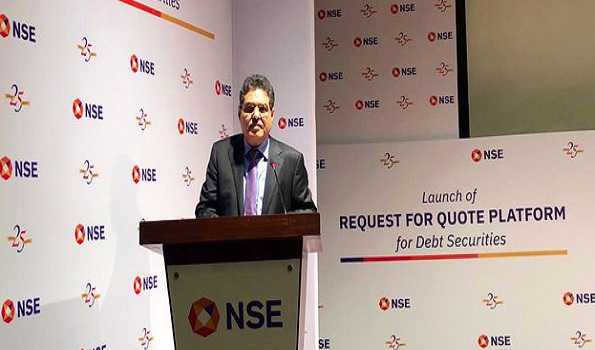Bond market close to my heart, more needs to be done for its development: SEBI Chairman Ajay Tyagi
Tyagi also made a pitch for setting up credit enhancement fund to facilitate infrastructure funding and operationalising a mechanism for credit default swaps.
Tarun Sharma | 4 February 2020
The Securities and Exchange Board of India (SEBI) Chairman Ajay Tyagi, on February 4, said the ‘unification’ of the debt market, and any appropriate tweaking to improve its liquidity and investor-friendliness, should be undertaken. “I think that the unification of markets, an idea which was initially brought about in the 2015 Budget, needs to be taken forward in the medium term with appropriate tweaking, as and when be required,” he said.
Speaking at the launch of NSE’s RFQ platform for execution and settlement of trades, which would allow market participants to transact in debt securities, Tyagi also made a pitch for setting up credit enhancement fund to facilitate infrastructure funding and operationalising a mechanism for credit default swaps. Tyagi also proposed for passing a legislation that would help in the development of the bond market and bring in much–required liquidity. The SEBI Chairman also highlighted the regulator’s achievements in last three years towards the development of the bond market.
“The development of the bond market was close to my heart, and in the last couple of years regulator had done significant work,” said Tyagi, who has been credited with laying down the groundwork for the development of bond market.
“The bond / secondary market is not very liquid. The US is the only market that is an outlier where daily trade as a percentage of corporate bonds outstanding are over 1 percent,” said Tyagi. Tyagi noted that in India it is 0.63 percent, in Japan it is at 0.05 percent, China at 0.07 percent, and South Korea at 0.20 percent.
“Among its peers and Asian countries, India is not doing that bad as of now, but we truly appreciate that 0.63 percent of the daily trade as percentage of corporate bonds outstanding is hardly anything, and there is a need for more liquidity, greater deepening, development, and participation in the bond market. In this context the RFQ platform become more important and a relevant initiative,” said Tyagi.
The SEBI Chairman added that much more needs to be done to shift from bank-based lending to the bond market. Tyagi also said that the Electronic Book Building mechanism has been really good as a mechanism for issuances, family issuances and for private placement basis in a transparent manner.
Electronic Book Building was started in somewhere in 2018 and till now there have been more than 1,500 issuances, and an amount more than Rs 9 lakh crore has been raised through it. During April to December of this fiscal year, the amount raised was Rs 3,88,000 crore, which is more than last fiscal year’s Rs 3,14,000 crore. So despite the slowdown the amount being raised is increasing, which shows that the platform is getting more popular.
"I would say with satisfaction that the Electronic Bidding Platform (EBP) is moving in the right direction. A reform which was put in place 2.5 years ago consolidated the re-issuance of licenses, which I think allows for a maximum of seventeen licenses that are maturing in the financial year.
This was done after a review to reduce fragmentation in bringing in liquidity, which has happened to an extent". Speaking on the initiatives taken during the last three years, the SEBI Chairman also stated that regulations governing Municipal Bonds have been almost rewritten, and that the regulator has had meetings with the National Housing Board (NHB), Secretary for Urban Development, and various municipalities.
“The smart cities initiative is also facilitating the raising of debt by the municipalities, which is another good effort,” said Tyagi.
Tyagi also spoke about how in 2018 and 2019, SEBI had put out a framework to enhance market borrowings with large corporates. According to the framework, large borrower’s segmental borrowing need to have 75 percent of the borrowing from the bond market.
Tyagi also said that SEBI also came out with a framework for the listing of commercial papers (CPs) that brought about more transparency. “The aim was to create awareness among the public about why and how the funds will be used.”
Tyagi noted that CPs worth more than Rs 3,58,000 crore are currently listed on the stock exchanges. “These are some of the measures which are taken during the last three years by SEBI. In this context, the RFQ platform would definitely help in pre-trade transparency, bringing in confidence in participants by providing an exit route in the secondary market and the bond market in a transparent manner,” he said.
View Details





